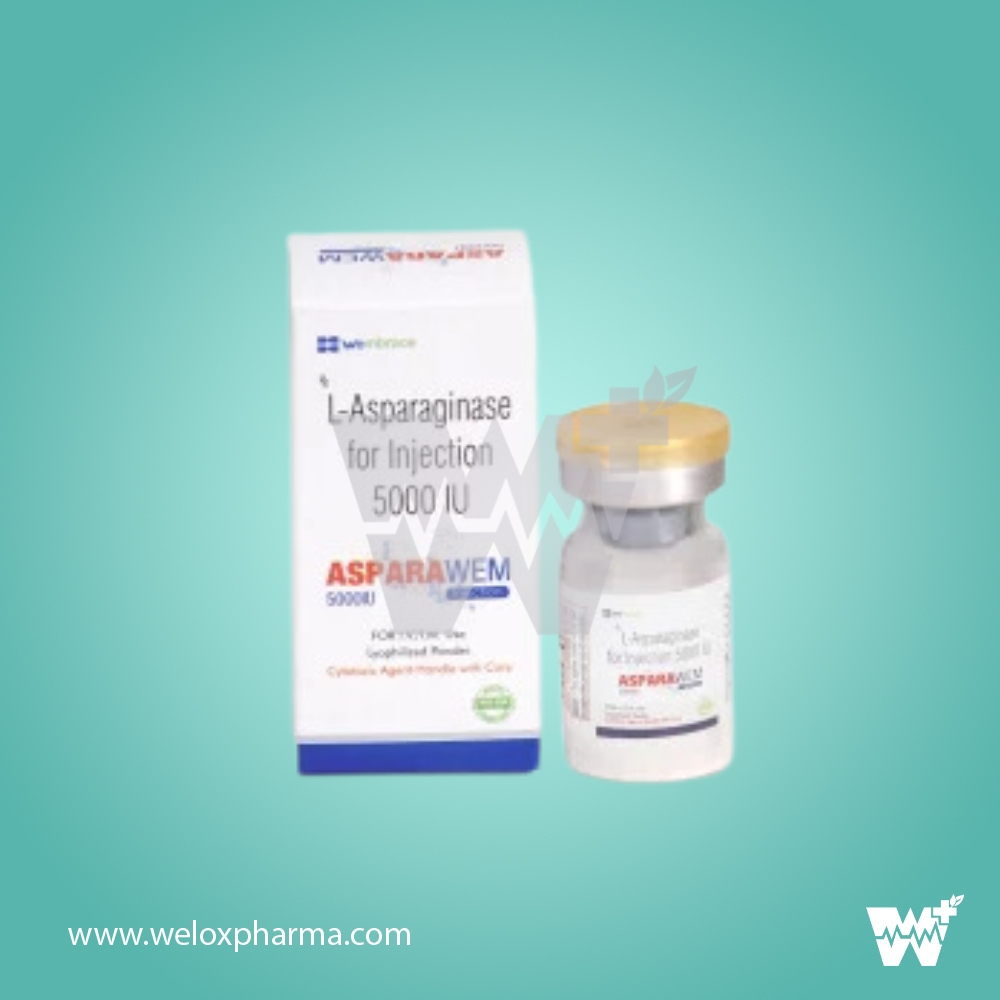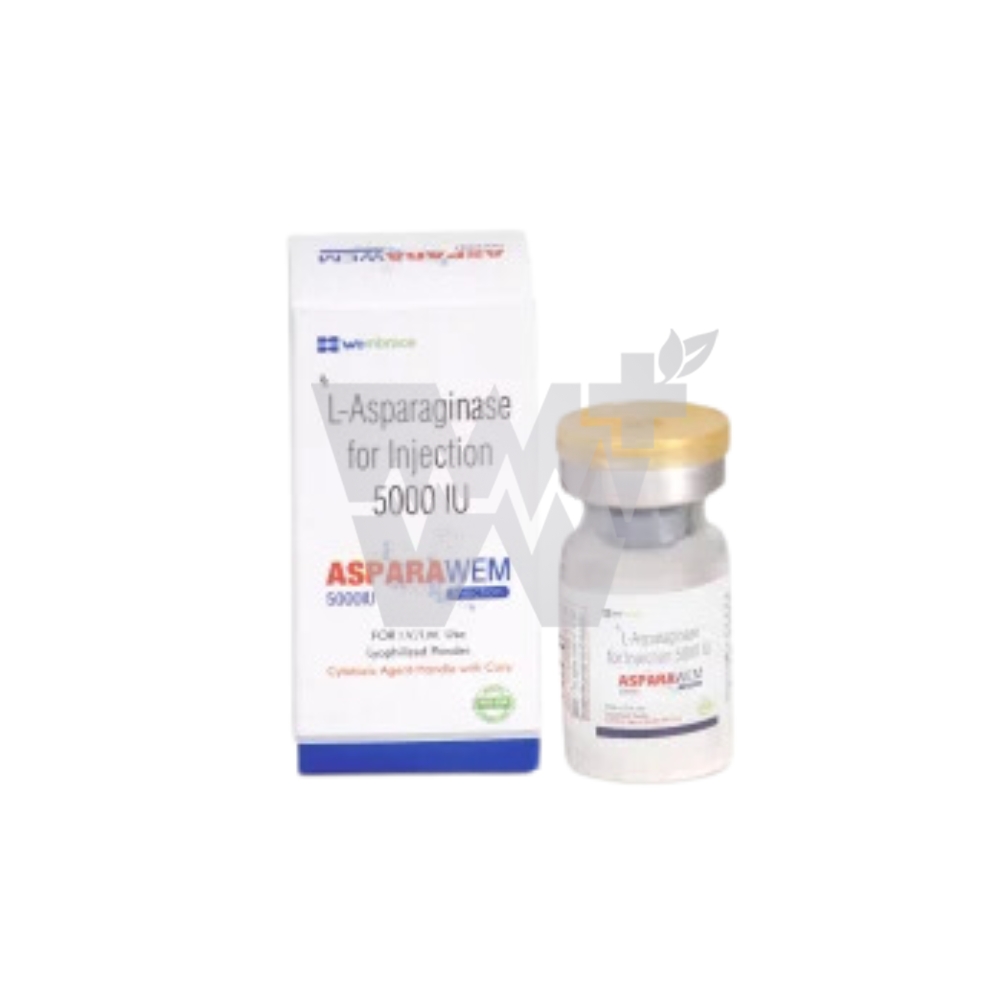



Introduction to Asparawem 5000 IU L-Asparaginase Injection
Asparawem 5000 IU L-Asparaginase Injection is a therapeutic enzyme designed for use in oncology. This injectable solution provides L-Asparaginase, an enzyme that deprives cancer cells of asparagine, a crucial amino acid for their growth and survival. It is primarily used in the treatment of acute lymphoblastic leukemia (ALL) and other hematological malignancies. Asparawem is an integral part of combination chemotherapy regimens aimed at improving patient outcomes.
Uses of Asparawem 5000 IU L-Asparaginase Injection
Acute Lymphoblastic Leukemia (ALL): Used as part of the treatment regimen for ALL, a type of cancer affecting white blood cells.
Other Hematological Malignancies: Effective in the treatment of various types of blood cancers where asparagine deprivation is beneficial.
Combination Chemotherapy: Utilized in conjunction with other anticancer agents to enhance treatment efficacy.
Benefits of Asparawem 5000 IU L-Asparaginase Injection
Effective Enzyme Therapy: Depletes asparagine levels in the blood, which is essential for cancer cell survival, thereby inhibiting tumor growth.
Targeted Treatment: Specifically targets cancer cells that are dependent on external sources of asparagine, minimizing damage to normal cells.
Improved Treatment Outcomes: Enhances the effectiveness of chemotherapy regimens when used in combination with other drugs.
Clinical Efficacy: Demonstrated efficacy in treating specific types of hematological cancers, leading to better patient management.
Mechanism of Action of Asparawem 5000 IU L-Asparaginase Injection
Asparagine Deprivation: L-Asparaginase breaks down asparagine in the bloodstream, depriving cancer cells of this essential amino acid required for protein synthesis and cell growth.
Cancer Cell Inhibition: By depleting asparagine, Asparawem inhibits the growth and proliferation of cancer cells that rely on asparagine for survival.
Synergistic Effects: Works in synergy with other chemotherapy agents to enhance overall treatment effectiveness.
Selective Action: Targets cells that are unable to synthesize asparagine internally, providing a targeted approach to cancer therapy.